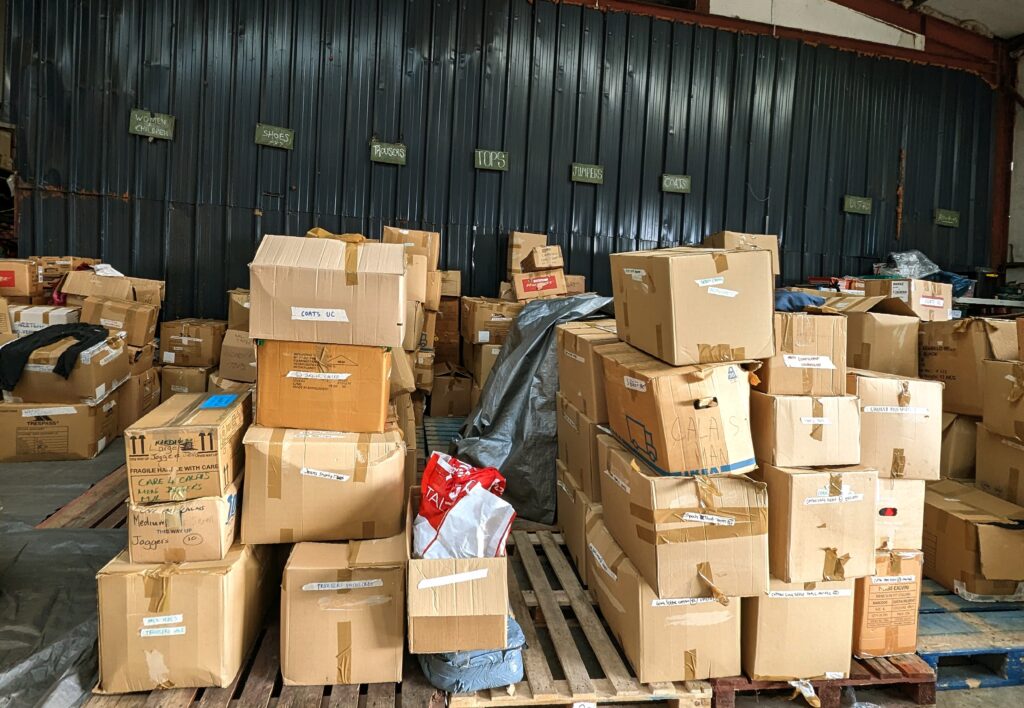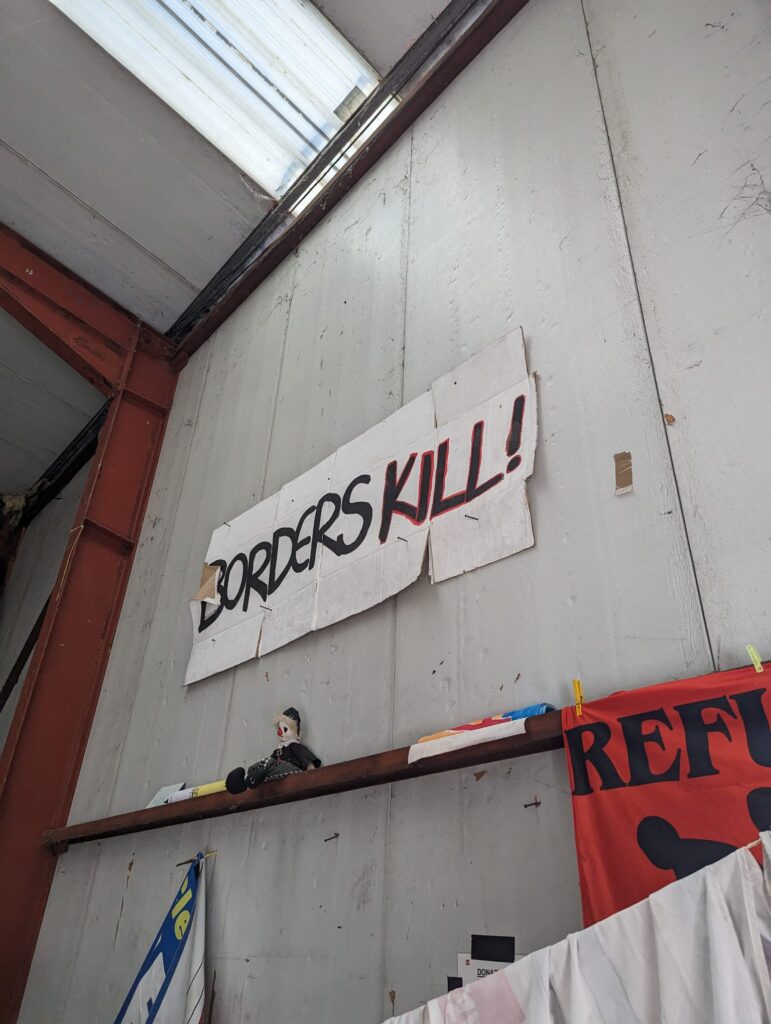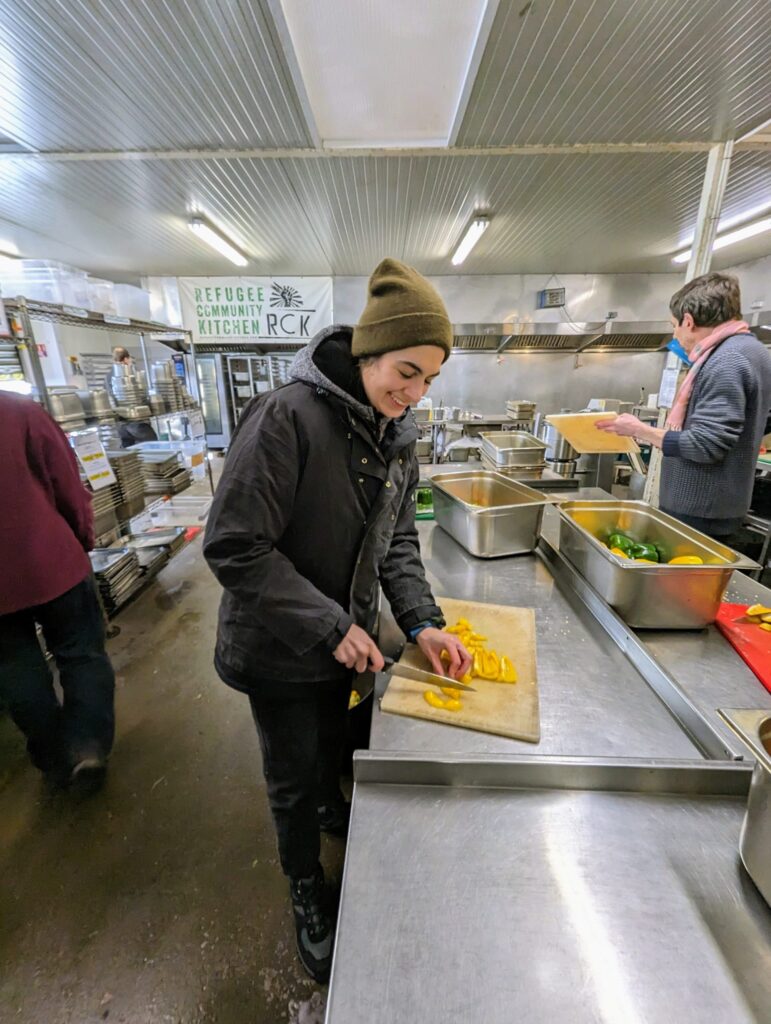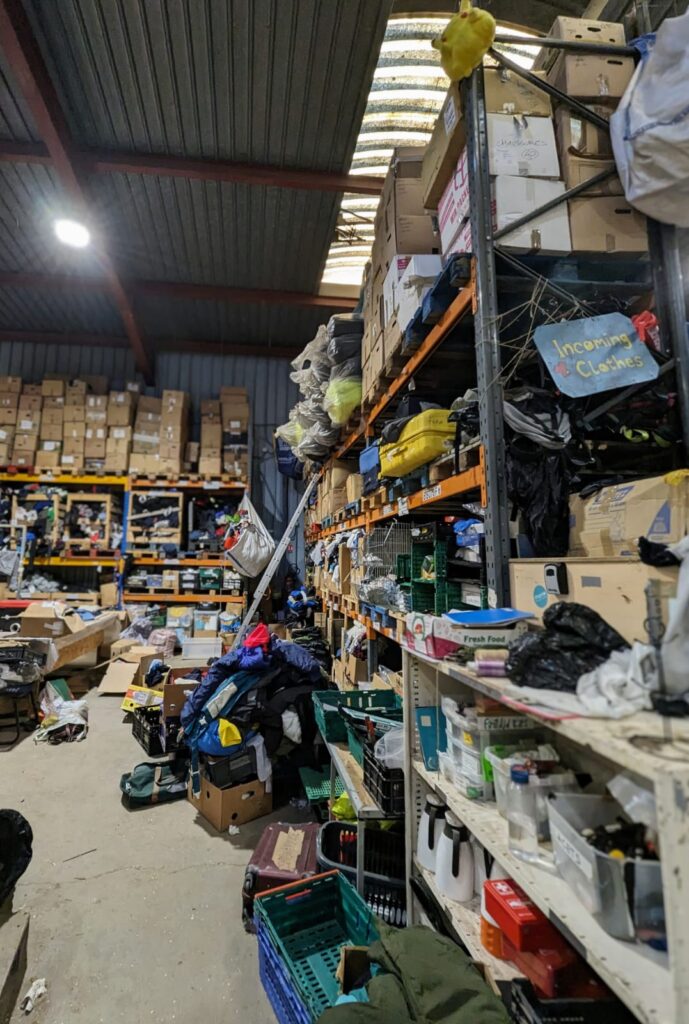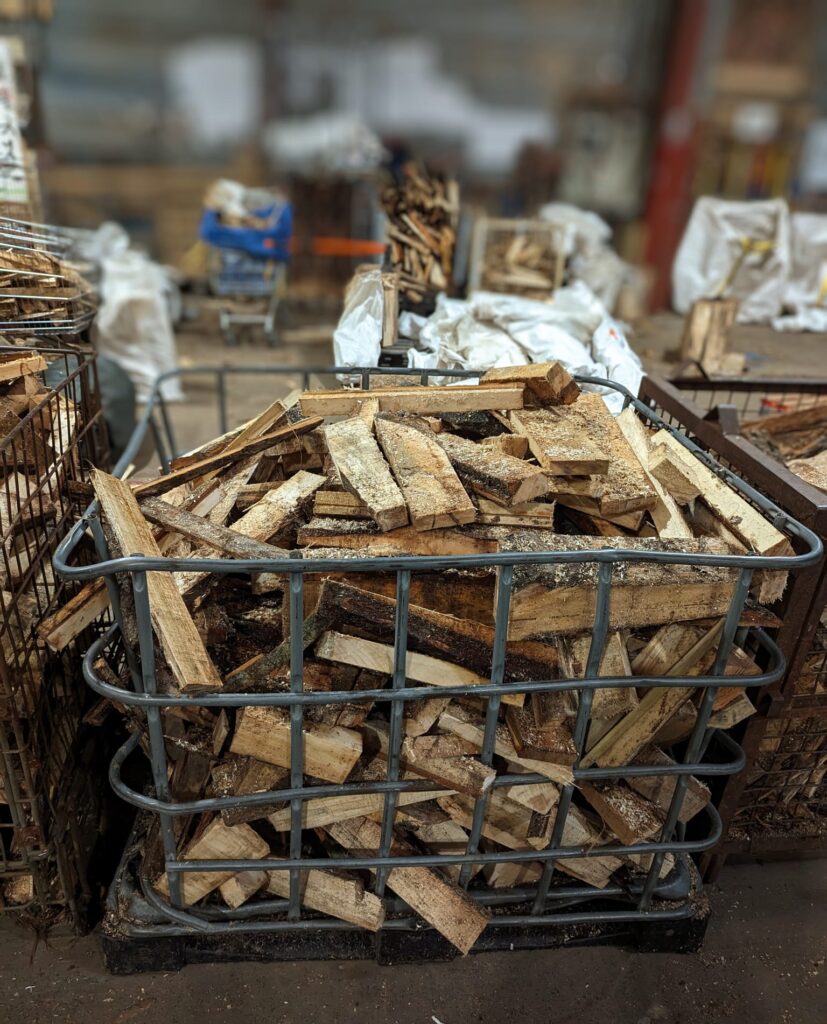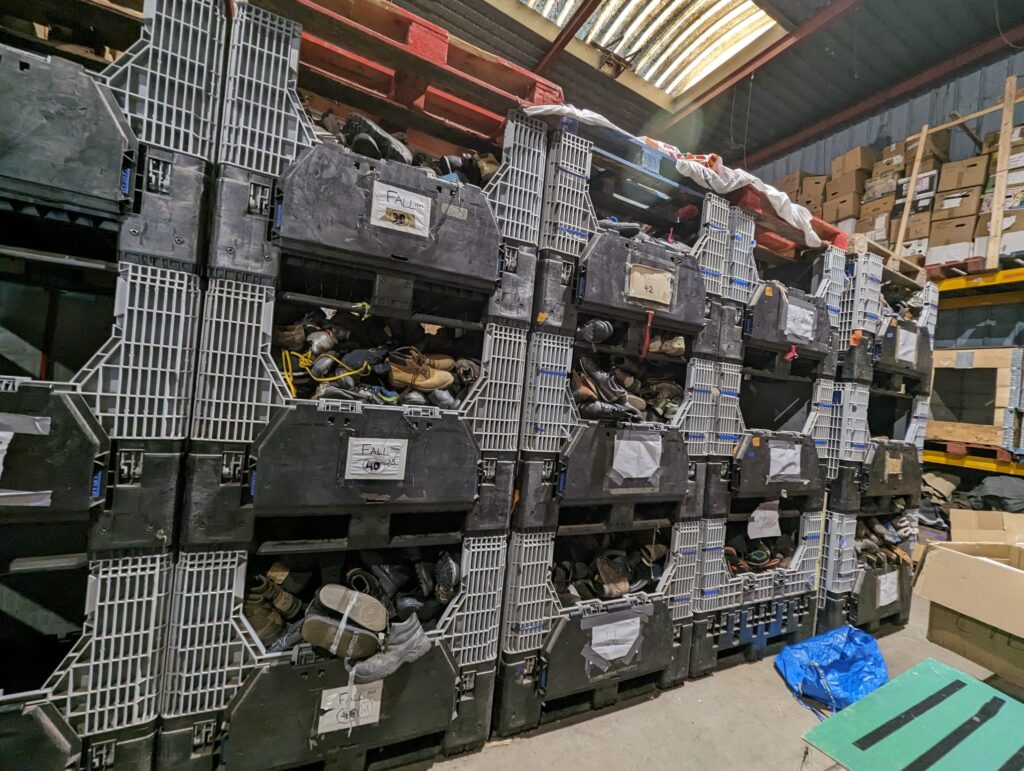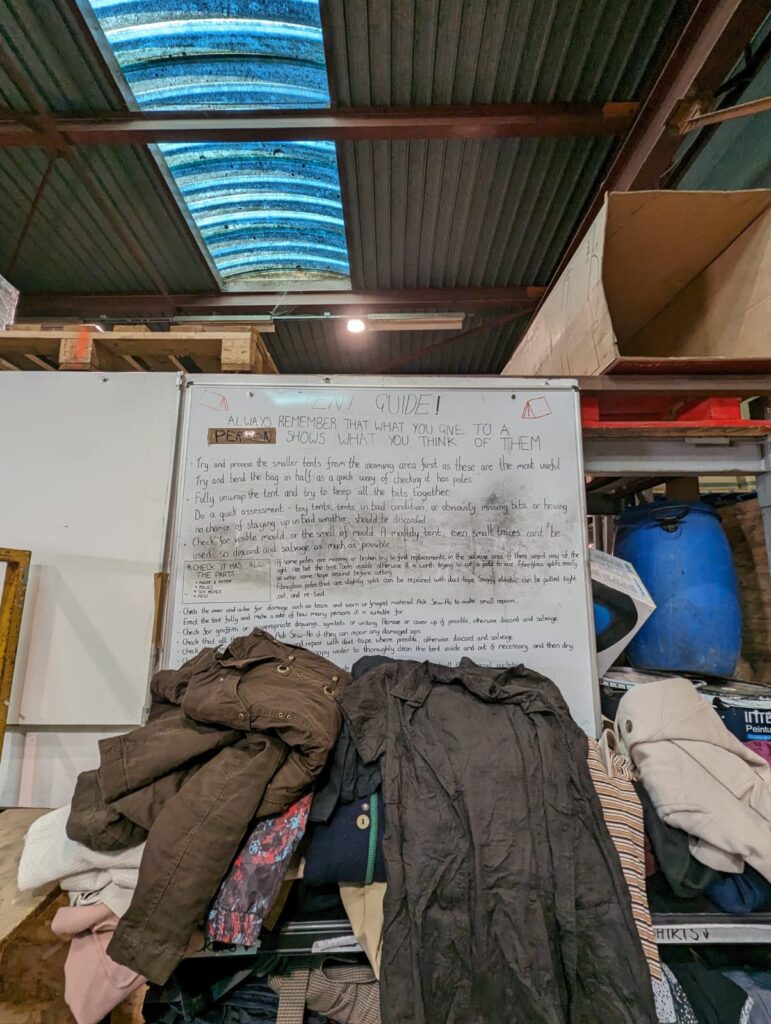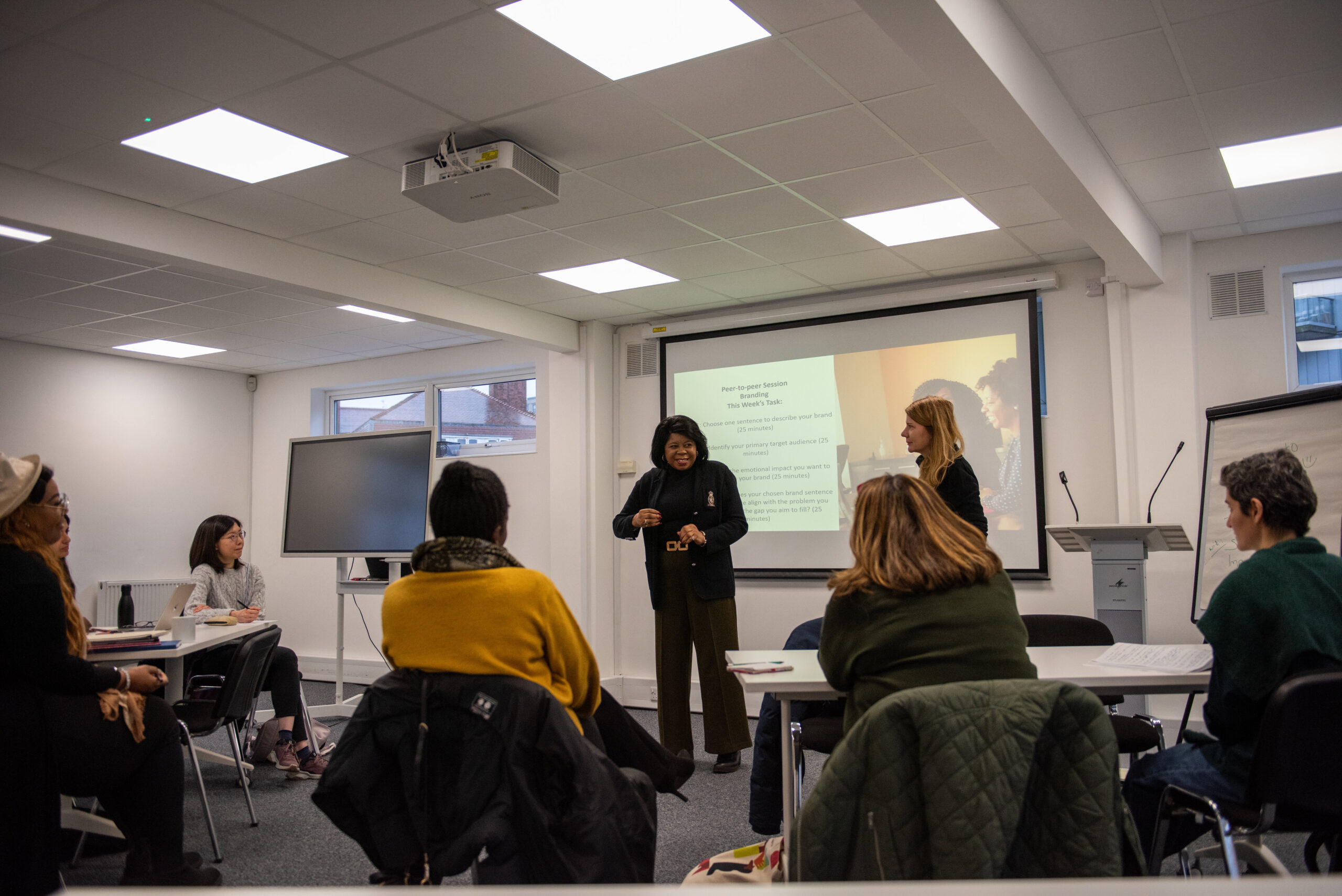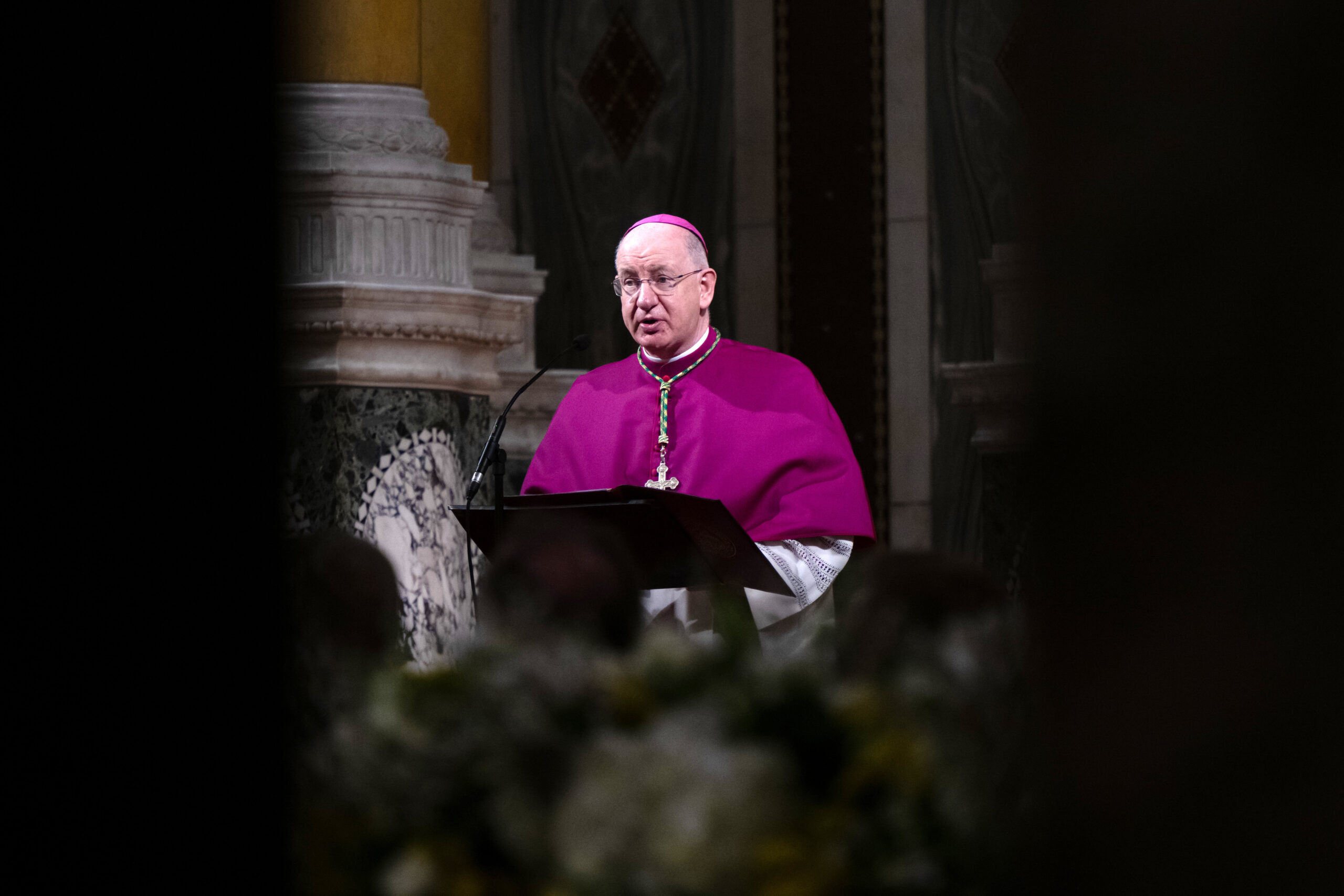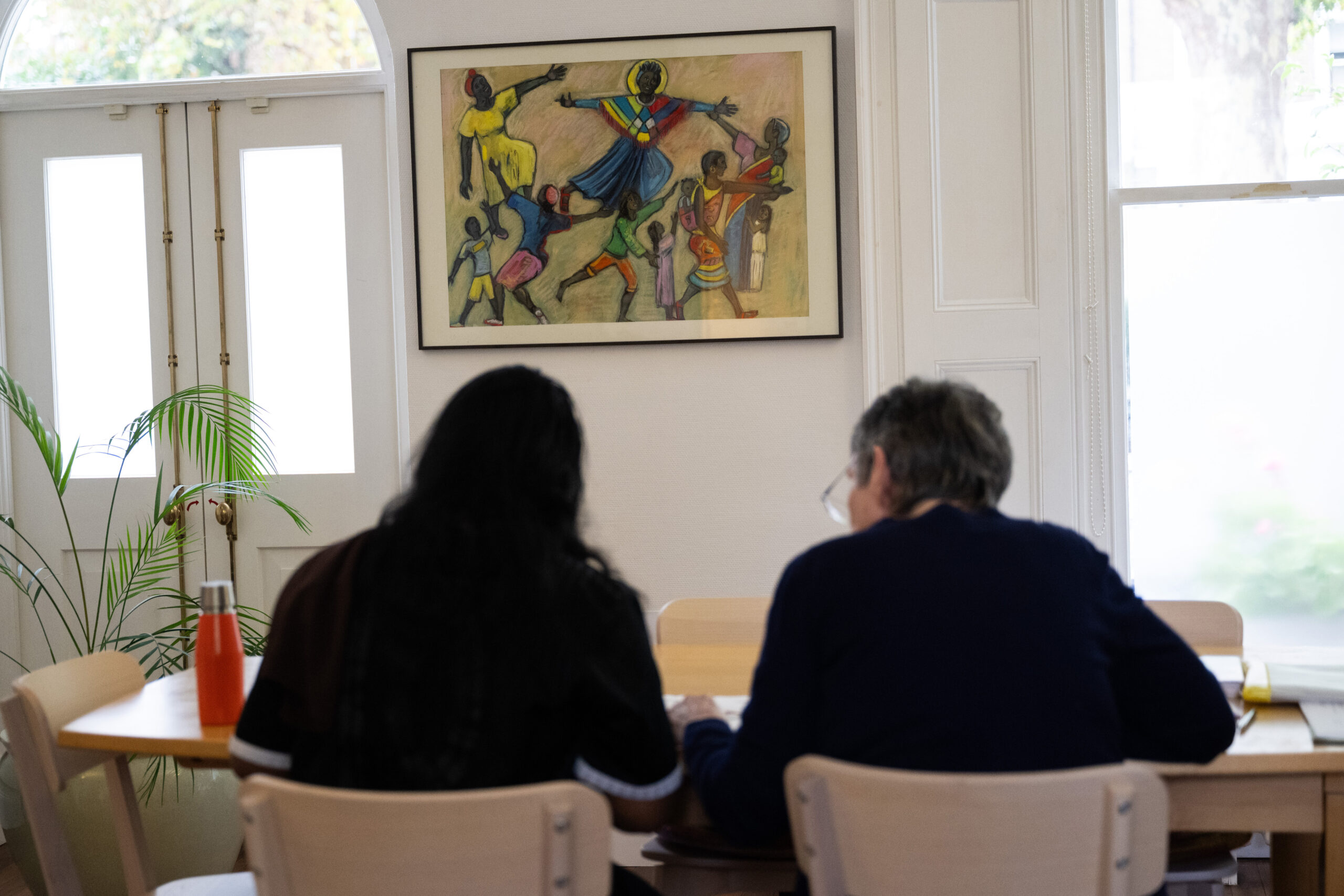Following a trip to Calais with Neighbours in Poplar, our Caritas Food Programme Support Officer Iman reflects on how charities are working to support Asylum Seekers and Refugees.
On Thursday 30th January 2025, I joined a team of volunteers led by Sr Christine Frost FCJ MBE, from the charity Neighbours in Poplar. Sr Christine has been travelling to Calais regularly since 2016, supporting several charities with donations and developing important relationships with them. After hearing about this incredible outreach, I asked if I could join the next visit to Calais, to see for myself how organisations are responding to the ongoing refugee crisis.
We set off before sunrise in the Neighbours in Poplar van, which was packed full of items to donate. From winter coats and bags of rice to milk, tea and more, our van was scheduled to visit and make deliveries to four different charities.
Our first stop was the Care4Calais warehouse; a vast space storing clothing, tents and food donations. We were welcomed by over 20 volunteers, who explained that they were creating packs to distribute during Ramadan next month. Coats and blankets are especially vital to withstand the brutal winter cold in Calais. We felt the bitter chill all day; a constant reminder of the harsh reality that people endure in pursuit of a better life.
Next, we visited the Secours Catholique (Caritas France) day centre, to distribute our second batch of donations. The centre is open three days a week, and offers a safe, warm space for people to have a hot drink, relax, participate in activities and charge electronic devices. Alongside this, Secours Catholique also delivers warm clothes and food, and works with other organisations to offer medical support and legal aid to those who need them.
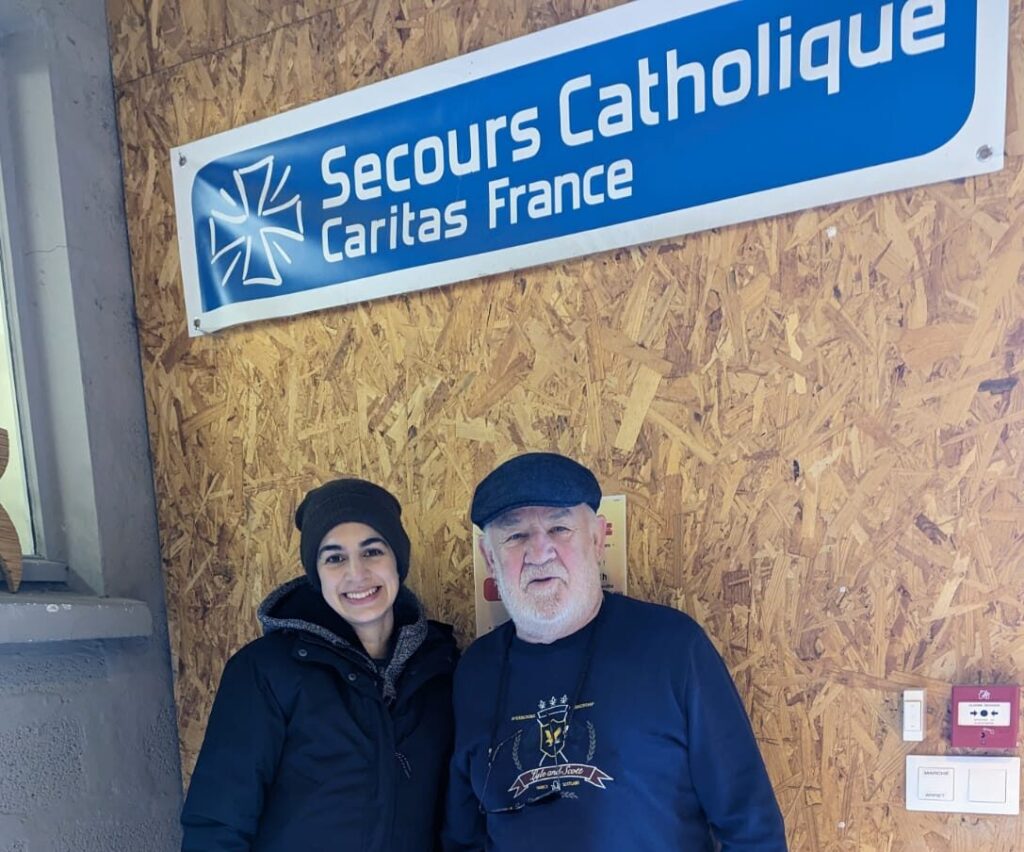
We were told that currently, there are close to 1,500 Refugees and Asylum Seekers in Calais. The day before we arrived, an estimated 600 people had visited the day centre seeking warmth and support. Devastatingly, a staff member also told us that a recent report showed that 90 people had lost their lives attempting to cross to the UK in 2024.
While touring the centre, staff recounted their own experiences of supporting refugees; we listened in silence to stories of unbelievable tragedy mixed with desperate, relentless efforts to seek out a stable and dignified life.
The third organisation we visited was Maison La Margelle, a house for Asylum Seekers who are struggling to access accommodation. The house is managed five days a week by two members of staff, alternating with another pair on weekends. The walls of the house were covered in colourful artwork created by guests, mostly of flags from across the world. The centre’s small team works around the clock to create an atmosphere of home and safety for residents: the day before our arrival, they had enjoyed a trip to the beach with activities.
The member of staff we spoke to had been at Maison La Margelle for 2 months. He shared his feelings about never really knowing the true impact of his work, and the temptation to hopelessness in the face of a seemingly never-ending crisis. When times are difficult, he thinks of a quote by Ghandi that appears on one of the artworks hung in the house: ‘Whatever you do will be insignificant, but it is very important that you do it.’
The final stop of the day was the Refugee Community Kitchen, located in a a huge warehouse with a large kitchen area. We were greeted by a team of volunteers, who were ecstatic to receive boxes (and boxes!) of tea.
The Refugee Community Kitchen was the largest warehouse we had visited, with thousands of items organised into different sections, including shoes, tents, children’s toys, and various types of clothing. The space at the far end was used to chop wood, and as we walked around, we began to smell the inviting scents of spices and home-cooked food. We had reached the kitchen, the centre’s lively heart.
The meals cooked by the Refugee Community Kitchen are prepared and distributed by volunteers every day, and are sometimes the only source of nutrition for the many living in tents who lack access to fresh, nutritious food or cooking facilities. As we looked on, eager volunteers supported with food preparation, cooking and washing up. One volunteer told us that he had been helping out from the beginning of the project in 2016, and that since then an estimated 4.5 million meals had been distributed.
On our way back to the UK, we reflected on the people we had met and the stories we had heard. The sky darkened as we drove towards Poplar, and Sr Christine said: ‘I think it is possible to love without faith, but I don’t think it is possible to hope without faith.’
I will always be inspired by the incredible people I met in Calais, and their commitment to hope and human dignity in the face of such a large-scale, continuous crisis.
Find out more about the Caritas Food Programme here.
Want to volunteer? Browse current opportunities on our volunteering portal.


